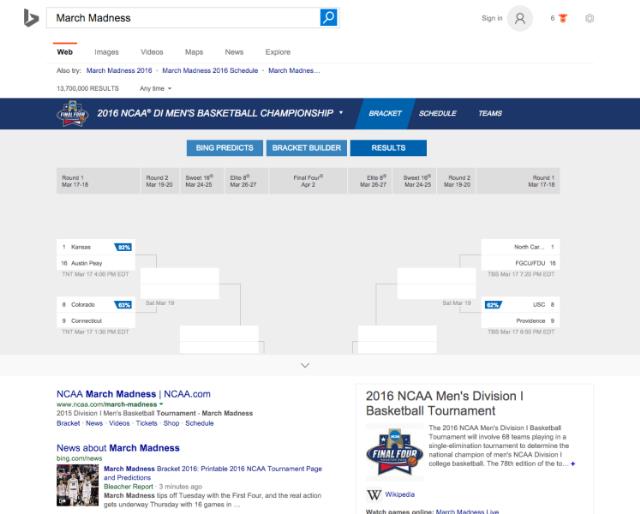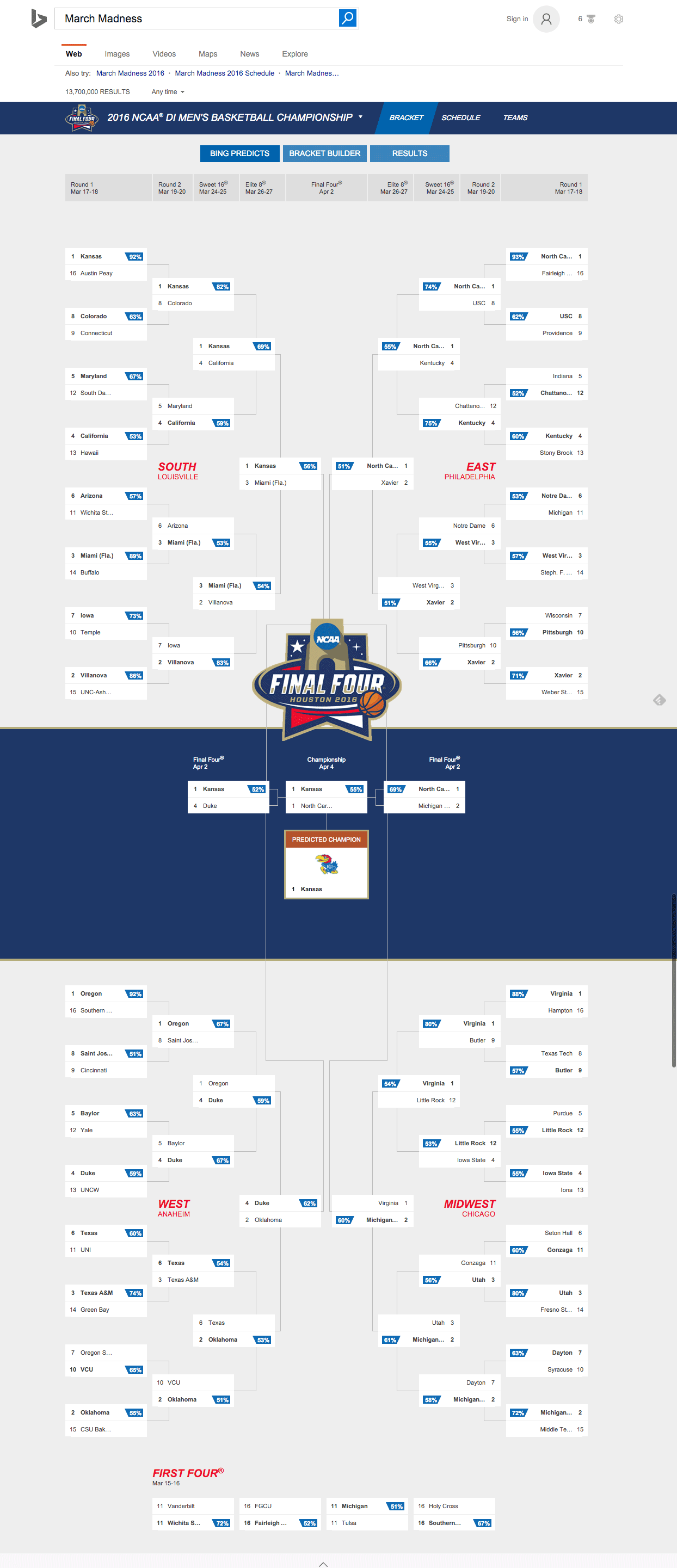
Source: YouTube
March Madness is upon us and everyone is getting into the spirit, including Bing. The search engine has launched their smart answers in the search results for March Madness and other related searches to see brackets, scores, and predictions.
Users get three options above the normal search results for the basketball tournament. The default view shows the current bracket results, but users can also build their own brackets and see Bing’s predicted outcome. On top of all of this, Bing also offers the schedules and teams playing in the competition.
Below you can see a screenshot of the default view for bracket results, which expands by clicking on the down arrow or the results button:

If you choose to view Bing’s predictions, the window gets even bigger. Barry Schwartz captured a large screenshot, which you can click to enlarge:
Now that the bracket has officially been announced, our data scientists are in the lab, working tirelessly to perfect their models so our smarter bracket is powered by Bing Predicts and ready for you to access by Monday morning. Stay tuned for an updated analysis of the Bing smarter bracket on the Bing blog tomorrow.


 Over the past few years, search engine optimization (SEO) has endured a drastic shift from focusing on building link profiles filled with as many links of any quality that you could accumulate to emphasizing the value sites offer to users by assessing content quality. Of course, as the shift has occurred many online marketers were left wondering “what exactly is quality content and how do search engines judge my content?”
Over the past few years, search engine optimization (SEO) has endured a drastic shift from focusing on building link profiles filled with as many links of any quality that you could accumulate to emphasizing the value sites offer to users by assessing content quality. Of course, as the shift has occurred many online marketers were left wondering “what exactly is quality content and how do search engines judge my content?”

